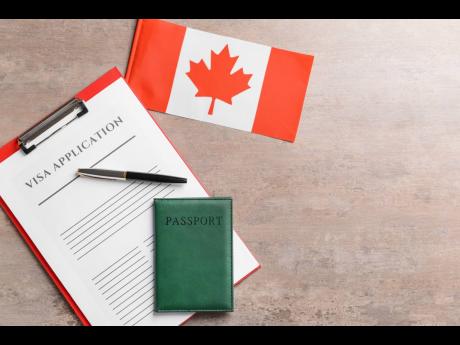Immigration Corner | Options to live in New Brunswick
Dear Miss Powell,
I was talking to an old classmate who now lives in New Brunswick, and she told me that you helped her to get a PR card to live there. I am writing to find out what are the options to live there, and to find out if I could qualify as well. I hope to read your answer in The Gleaner soon. Thank you in advance.
WW
Dear WW,
There are a number of programmes that qualified individuals can use to become a permanent resident of Canada. Since you are interested in New Brunswick, you should know that the most popular pathways to permanent residence are via the Express Entry System, The New Brunswick Provincial Nominee Program and the Atlantic Immigration Program.
You did not provide details about your education, occupation or skills, so I will highlight the key requirements for applying under these programmes.
KEYS DOCUMENTS
Most immigration programmes require you to provide proof that you have post-secondary education that will be acceptable in Canada, if your studies were completed outside of Canada. To demonstrate this, you will need an educational credential assessment report (ECA) for immigration purposes.
An ECA is used by the Canadian government to verify that your foreign degree, diploma, or certificate, or other proof of education is valid and equal to a Canadian one. This report can be requested from organisations such as World Education Service or International Credential Evaluation Service – British Columbia Institute of Technology. If you are an architect, you should request your report from The Canadian Architectural Certification Board https://cacb.ca. If you are a pharmacist, you should contact The Pharmacy Examining Board of Canada. If you are a medical doctor, you must get an ECA report for your primary medical diploma from the Medical Council of Canada.
Additionally, all economic immigrants are required to provide proof of your competence in French and/or English language by providing an approve language test, such as Canadian English Language Proficiency Index Program; International English Language Testing System; Pearson Test of English or for French; Test d’évaluation de français.
PROGRAMMES
Once you have the key documents, you have the option of applying under the Express Entry System, which manages programmes such as the Federal Skilled Worker Program Federal Skilled Trade, Canadian Experience Class and some Provincial Nominee Programs.
There is also the Atlantic Immigration Program, which is for individuals who are interested in living in one of the Atlantic provinces such as New Brunswick, Newfoundland and Labrador, Nova Scotia, and Prince Edward Island.
You must also have a job offer from a designated employer, and the job offer must be non-seasonal, full-time and fall within one of the job classifications that are listed on the website. International students who have graduated from a recognised post-secondary institution in Atlantic Canada stand a good chance of being selected under this programme.
PROOF OF SAVINGS
You must have a proof of savings for most of Canada’s immigration programmes. The amount of savings, known as settlement funds, depend on the number of persons in your family, and that figure changes annually. As of June 2024, a single person must have at least CDN$14,690; a family of two needs a minimum of CDN$18,288; a family of three, CDN$22,483; family of four, CDN$27,297. You should also ensure that you have additional funds to cover the expenses for medical report, police report, application and biometrics fees.
There may be other options available to you, therefore I recommend that you to consult directly with a Canadian lawyer to help you choose the best pathway for you and your family, based on your educations, occupation, and skills.
Deidre S. Powell is a lawyer, mediator, and notary public in Canada. Contact her via Facebook, Instagram or WhatsApp 613-695-8777.


